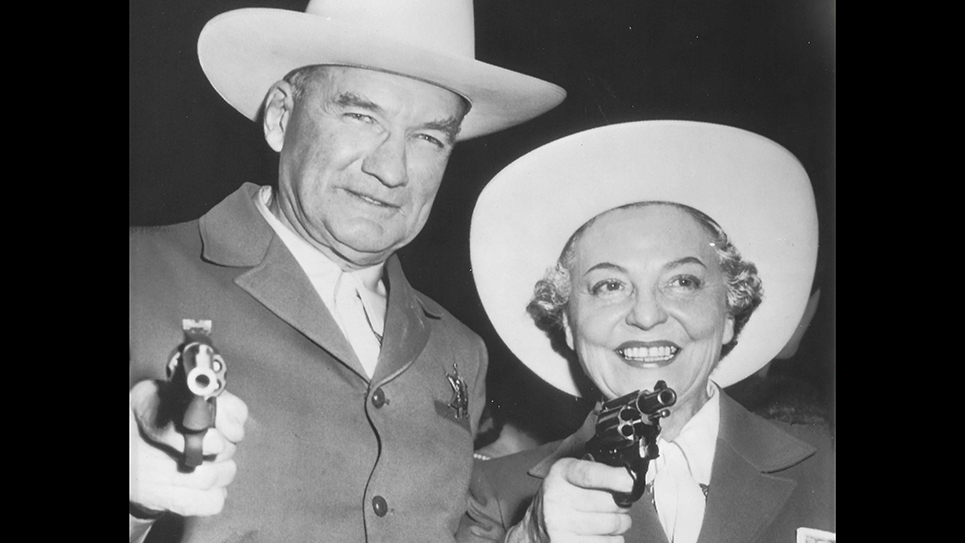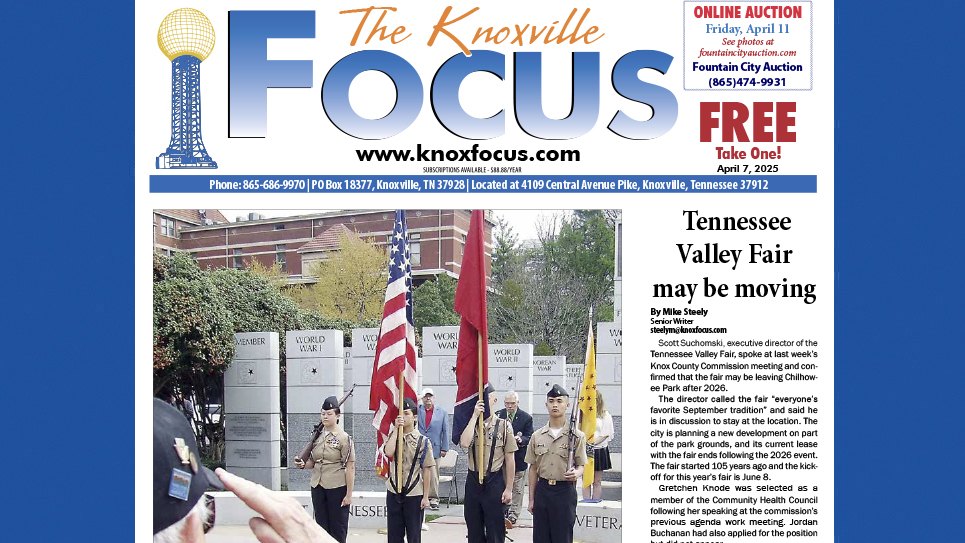George W. Malone of Nevada
With the defeat of U.S. Senator Tasker L. Oddie in 1932, Nevada became a solidly Democratic state during the Age of Roosevelt. Nevada was represented in the United States Senate by Key Pittman and Pat McCarran. The two were a contrast in just about every way. Pittman was tall and lean while McCarran was short and round. Both were Democrats and both supported Franklin Roosevelt and the New Deal. Pittman was a hard-drinking veteran of the Senate while McCarran was a brash newcomer with a talent for legislating and accruing power. Pittman and McCarran were never close, and a sharp rivalry developed between the two. While Pittman presided over the Senate’s prestigious Foreign Relations Committee, Pat McCarran was busy building a formidable political machine back home in Nevada. Key Pittman’s death in 1940 helped to pave the way for a revival in GOP fortunes in the Silver State.
While George Malone was always identified by most of the national media at the time as being “ultra conservative,” the Nevadan was more complicated than that. As a senator, Malone was always friendly to organized labor, a curious position for most Republicans. When it came to speechmaking, George “Molly” Malone was no match for the florid orators of the South or those whose words flowed majestically. Malone spoke in a droning tone and was said to be able to empty the Senate Chamber instantly when he got to his feet to make a speech on a topic most of his colleagues considered did not even rise to the level of dreary and dull. There were many in Nevada who retorted affectionately, although usually in less polite terms, “Molly may be a son of a gun, but he’s our son of a gun.”
“Conservative almost to a fault, Senator Malone was not a reactionary.” That was how the Reno Gazette-Journal summed up Malone’s 12 years in the United States Senate. The newspaper readily acknowledged Malone had been “the target of criticism and ridicule from the liberal Congressmen who were in power at Washington, and from the so-called intellectual left whose views were broadcast by Eastern newspapers and columnists.” The editorial gloated that none of it bothered Malone in the least “and it did not bother the voters of Nevada either.”
An affable man, George Wilson Malone was sincere in his beliefs and firm in his convictions. Derided by much of the national media, Malone plodded along and worked hard on behalf of Nevada and Nevadans. Much of Malone’s political success had to do with his genial nature, and one newspaperman recalled, “One had just as good a chance of running into Senator Malone at a country dance in Churchill County as in the busy hotels of Las Vegas and Reno.” “He was a familiar figure in Yerington and on the Las Vegas strip,” the journalist recalled. “White Pine County miners were as comfortable in his presence as were the cowboys around Austin, or the gandy dancers at Hazen.” It came down to the fact that “Molly” Malone loved Nevada, and in many cases, that was enough for most voters.
Howard W. Cannon, who defeated Malone in the 1958 election, remembered Malone as possessing “a rare exuberance of personality and a tenacious trait of character that made him devoted to these ideals for which he stood.” Senator Cannon told a newsman Malone had provided the best description of himself. “He often said that he was a builder and not a destroyer. He prided himself upon those things in Nevada that he helped as an engineer and as a public servant to build for the benefit of the state.”
George W. Malone was a persistent office-seeker for the better part of two decades. One of Malone’s favorite subjects was Britain and the senator was something of an Anglophobe. In a speech to the Commonwealth Club in San Francisco, Malone said, “England is living on a 300-year-old reputation and building a population that can’t be supported without an empire.” Sir Robert Hadow, the British consul general, was sitting in the audience and snapped, “You sir, are a – – – bloody liar.” The 6-foot-2, 66-year-old Malone vaulted the table and threw a punch at the consul general but missed his target.
When Senator Malone visited the Soviet Union in 1954, he met Nikita Khrushchev for a two-hour conversation where the two discussed trade and foreign affairs. When the Soviet premier brought up American bases located in Europe and asked the senator what would happen if Russia were to build similar bases in Cuba, Malone retorted, “We’ll bomb the hell out of you!”
Born in Kansas, George Malone’s first visit to Nevada occurred when he was a member of a surveying party. Malone attended the University of Nevada, where he played football and was a champion boxer. George Malone enlisted in the Army during the First World War, fought overseas and came home where he was an active member of the American Legion.
Malone had first gained statewide notoriety when he had been appointed state engineer for Nevada in 1927, a post he held until 1934. It was 1934 when he first ran for the U.S. Senate, challenging Key Pittman. Nevada was still thoroughly Democratic and Malone was badly defeated. Malone tried again in 1944, facing the formidable Pat McCarran, whom he criticized roundly, something the incumbent never forgot. McCarran won decisively.
In 1945, Senator James Scrugham died in office and Governor Edward “Ted” Carville resigned to allow himself to be appointed to the senatorial vacancy by his lieutenant governor. That has almost always been unpopular with voters and Senator Carville faced Congressman Berkeley Bunker in the Democratic primary. The two fought a bitter primary, which Bunker won, but many Carville Democrats supported George Malone, who was the Republican candidate. 1946 was a big year for the GOP and Malone’s persistence had paid off; he had won a seat in the United States Senate.
The Malones were off to Washington, D.C. Malone’s wife, Katie, was very active in Washington’s social life, and their daughter, naturally named Molly, later worked in her father’s office. Mrs. Malone, whose given name was “Ruth,” was as outspoken as her husband. The Malones became good friends of Richard and Pat Nixon. Katie Malone created a stir amongst the Senate ladies when she abruptly got up and stalked out of a talk being given by freshman Senator Richard Neuberger when he made a remark critical of then-Vice President Nixon. Press reports indicated Mrs. Malone had let go of a hearty “boo!” before departing, but she denied it. What everyone did agree about was that Katie Malone exchanged pointed and cross words with Perle Mesta, Washington’s “hostess with the mostest.”
Malone might very well have been confined to one six-year term had things gone as planned in 1952. Alan Bible, Nevada’s attorney general and the former law partner of Senator Pat McCarran, was the favorite for the Democratic nomination to oppose Malone in the general election. Bible was upset in the Democratic primary by Tom Mechling, a journalist who won the nomination by relentlessly knocking on doors. Mechling had little connection to the state and made the mistake of attacking the powerful McCarran. The senior senator took to the radio where he made a statewide broadcast denouncing and repudiating Mechling and endorsing his Republican colleague, whom he liked not at all. That gave Malone just enough of an edge to win by 2,700 votes.
George Malone had been remarkably lucky in 1946 and 1952, and the Democrats had been bitterly divided. Pat McCarran was dead, and Nevada Democrats were united. 1958 was a terrible year for GOP candidates across the country, and the Silver State was no exception. Governor Charles Russell and Senator George Malone were both easily defeated by their Democratic opponents.
Following his defeat for reelection in 1958, George Malone remained in Washington, D.C., where he opened a consulting office as an engineer. It soon became clear Malone had not given up hope of returning to high office. As neither of Nevada’s seats in the United States Senate was up for election in 1960, Malone cast longing eyes on Nevada’s congressional seat held by Democrat Walter Baring. As the 1960 election approached, Malone began quietly testing the waters for a run to take on Baring, Nevada’s congressman-at-large. The Silver State’s population gave it only one member in the House.
The former senator attended the Republican State Convention in May 1960, where he announced that he would seek the GOP nomination for Nevada’s sole seat in the U.S. House of Representatives. “I think I can do it,” the 70-year-old told the assembled delegates. “It will take a tough campaign by someone who has gone before.” As to the two young men already running for the Republican nomination, Malone dismissed their candidacies, saying they “don’t have a chance.”
George Malone embarked upon his last campaign for public office with his usual gusto despite his advancing years. Having run five statewide races since 1934, George W. Malone had considerable name recognition, as well as a wide acquaintanceship throughout the Silver State. Malone had friends tucked away in the sparsely populated “cow counties” of Nevada, as well as the more urban areas of Las Vegas and Reno. Malone, wearing a white Stetson, trudged through the Nevada State Capitol Building in Carson City to file the necessary papers with the secretary of state’s office to run for Congress. Malone stopped to shake hands with everyone he met and told a fellow on an elevator he was running for Congress and beamed when the man replied, “Attaboy, Molly!”
Malone told anyone who would listen he wasn’t running simply to be a congressman. “I didn’t run for the Senate just to be a senator,” Malone said. “I want to go in there to put over my projects.”
The veteran campaigner hit the trail, renewing his friendships and making new ones in his quest to become the Republican nominee for the U.S. House for Nevada. Malone’s views hadn’t changed in any discernible respect. Malone was still against sending “billions to Europe” and worried about a rising debt ceiling. Asked by one reporter if he didn’t consider running for the House a step down from the Senate. “Not at all,” Malone replied. “But, if I am, it’s to upgrade the representation.” “I don’t know why people look down on Congress,” Malone added after a moment. “Those fellows are important, too. If anything, it’s a tougher job being a congressman.” When asked about his chances for a comeback, Malone grinned and said, “I’m a natural optimist.” When reminded of the heavy advantage Democrats enjoyed in registered voters in southern Nevada, Malone readily admitted it wouldn’t be easy for a Republican to win. “I’ve never picked any easy ones,” Malone shot back. “You know that.”
“There are a lot of new people. The population of the state nearly doubled while I was away in the Senate,” Malone pointed out. The former senator said he was going to get out and meet as many people as he could. “I intend to win,” he said.
Eventually, George W. Malone faced three other candidates inside the GOP primary, including William S. Tyson, a millionaire dairyman and the son-in-law of famed hostess Pearle Mesta. Despite Tyson’s free-spending, Malone easily won the Republican primary to face Congressman Baring in the general election.
The fall campaign was anti-climactic. Malone carried several of the cow counties, but Baring swamped the former senator in populous Clark County (Las Vegas), winning better than 65% of the vote. Outside of Clark County, Malone was only a couple of thousand votes behind the popular incumbent, but he lost the Las Vegas area by 13,000 votes.
Little more than six months after the election, Malone was seriously ailing and confined to a Washington, D.C., hospital, suffering from cancer. George “Molly” Malone died May 19, 1961.
© 2025 Ray Hill






